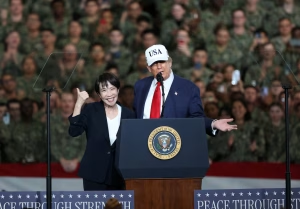KUALA LUMPUR, 28 October 2025 — The newly announced Agreement on Reciprocal Trade between Malaysia and the United States has sparked both optimism and concern, as analysts weigh its potential benefits against the implications of Malaysia’s purchasing commitments and market access pledges.
Under the deal, the U.S. has granted tariff exemptions on selected Malaysian products, including palm oil and semiconductor components, a move widely welcomed by exporters. However, the agreement also includes Malaysia’s commitment to increase purchases of U.S. goods and energy products, reportedly worth US$3.4 billion annually, as part of a broader effort to rebalance trade flows.
According to reports from Reuters and Energy Intelligence, Malaysia’s state-owned oil and gas company PETRONAS, is expected to play a central role in fulfilling this purchase target through new U.S. liquefied natural gas (LNG) offtake agreements. While PETRONAS has not confirmed any binding obligation, it is understood that the government intends for the company to help achieve this figure over the coming years.
This development raises questions about whether Malaysia’s commitments are commercially strategic or potentially burdensome. Energy analysts note that while U.S. LNG imports may help diversify Malaysia’s energy portfolio, they could also expose PETRONAS to higher procurement costs at a time when domestic supply remains sufficient and regional LNG markets offer competitive alternatives.
Balancing Opportunity and Obligation
Supporters of the deal highlight the strong bilateral trade momentum between the nations. The United States remains Malaysia’s third-largest trading partner, with total trade reaching US$72 billion in 2024, driven by semiconductors, medical devices, and palm-based products. The tariff exemptions are expected to accelerate Malaysia’s export growth in these sectors, particularly for certified sustainable palm oil and advanced electronics.
“The agreement represents a pragmatic step in strengthening Malaysia–U.S. relations,” said Belvinder Sron, Chief Executive Officer of the Malaysian Palm Oil Council (MPOC). “The zero-tariff treatment for palm oil provides Malaysia with a competitive edge in a high-value, highly regulated market.”
However, trade experts caution that purchase-linked agreements must be carefully managed to avoid perceptions of economic imbalance. Dr Yeah Kim Leng of Sunway University observed that while reciprocal trade arrangements can boost bilateral confidence, “commitments that lean heavily on mandatory purchases could risk constraining Malaysia’s fiscal and commercial flexibility.”

Indeed, the published U.S. Trade Representative (USTR) fact sheet describes Malaysia’s obligation in broad terms, committing to “increase imports of U.S. goods and services across key sectors.” It does not explicitly state that PETRONAS is legally required to make the purchases, suggesting that the figure serves more as a targeted goal or policy intention rather than a binding contractual clause.
A Test of Strategic Diplomacy
The trade pact arrives as Malaysia seeks to strengthen ties with major global economies while advancing its own MADANI Economy and New Industrial Master Plan 2030 agendas. By aligning with U.S. supply chains, Malaysia stands to gain enhanced access to technology, investment, and innovation collaboration, particularly in renewable energy and AI.
Still, the underlying tension remains between opportunity and obligation. While the U.S. tariffs on Malaysian exports offer tangible benefits, the expectation for Malaysian state-linked companies to import billions in U.S. goods each year places the onus on Malaysia to ensure that commercial decisions remain economically sound, transparent, and aligned with national interests.
For PETRONAS, the focus will likely be on ensuring that any LNG purchase aligns with market realities and long-term energy strategy, rather than symbolic trade balancing.
As Malaysia navigates this new trade era, the Agreement on Reciprocal Trade stands as both a diplomatic success and a strategic test, one that will measure how effectively the nation can turn political goodwill into sustainable economic gain without compromising autonomy in its commercial and energy policies.












